From “diversity” to “justice”: understanding faith approaches to decolonisation
Dr Amjad Mohamed-Saleem
JLI Leadership Council
International Federation of Red Cross and Red Crescent Societies
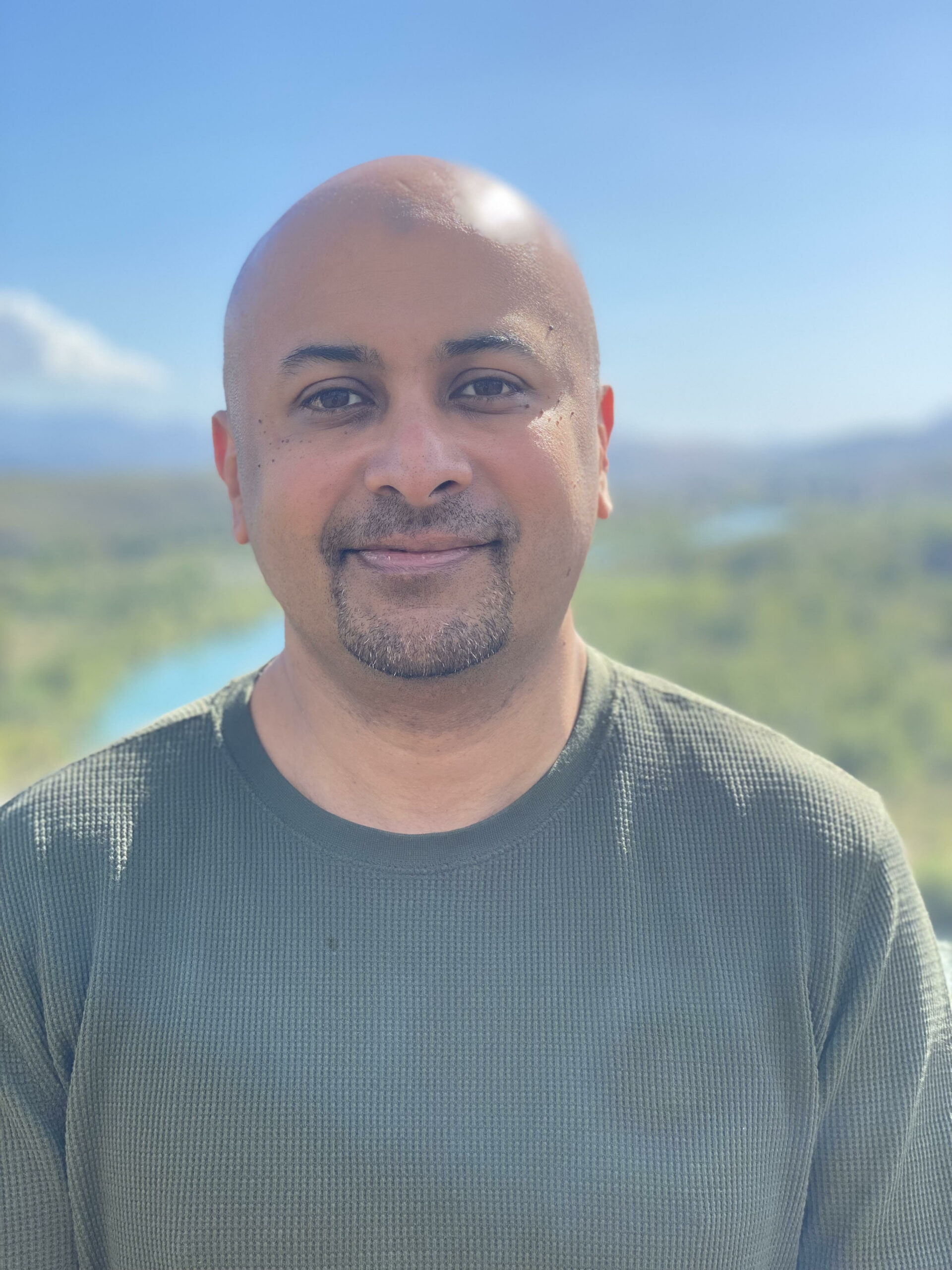
My official journey with JLI started in early 2015, enroute to the World Humanitarian Summit of 2016. The Summit highlighted the need for exploring localisation and, in another way, the role of faith organisations. The latter is something of extreme importance to me, having had the discomfort of being firmly told on more than one occasion, “We don’t do faith!”. The way in which JLI provided a dedicated space for exploring the role of faith organisations in humanitarian work was of particular interest. It was filling a gap and creating a space for building understandings.
I come to the JLI from a number of perspectives. I’d had practical experience of working with a faith based organisation in the field, and being denied a seat at the table because of my colour and the faith-based organisation that I represented. I was soon led to believe that the humanitarian and development industry would prefer to disregard faith and faith engagement. However for me, to disregard faith is to disregard the lived experience of millions of people worldwide – this strikes at the heart of the decolonial debate, of a denial of agency, representation, thinking and ultimately power. We need to have faith at the table.
To disregard faith is to disregard the lived experience of millions of people worldwide
JLI’s Fair & Equitable Approach is an intriguing prospect for conversations to start. It is a refreshing way to approach a process that has increasingly frustrated me. Now that suddenly it has become trendy to talk about “decolonisation”, we have seen the decolonisation discourse and narrative co-opted to instead focus on diversity and inclusion – as opposed to looking at the deeper, systemic problem of asymmetric power that comes from a pedagogy that brown and black subjects are not ready to take control of their destinies.
We need to understand the narratives of decolonisation, colonialism, and localisation and their intersection with diversity, equality and inclusion. They are not the same! Decolonisation is about looking at change in all systems which are oppressive to people who are Black, Indigenous or a Person of Colour (BIPOC), and from what is called the Global South (itself a disputed term). However the current conversations seem limited to tinkering with, and not replacing, existing problematic systems – failing to acknowledge that the global aid industry is the grandchild of colonial missionaries and a result of colonial hangover.
The Fair & Equitable Dialogues, a series of webinars launched in December 2021, allowed us to have open and honest conversations, led by local actors, about what localisation and decolonisation meant for local faith actors working in the humanitarian space. From the word go, we consciously sought to democratise the space for people to share ideas, and tried to correct power imbalances in terms of who was given the platform to speak, how discussions were structured, and what questions were being asked. Recognising that the space and the format itself needed to be decolonised and rethought was as much part of the thinking and process as who said what.
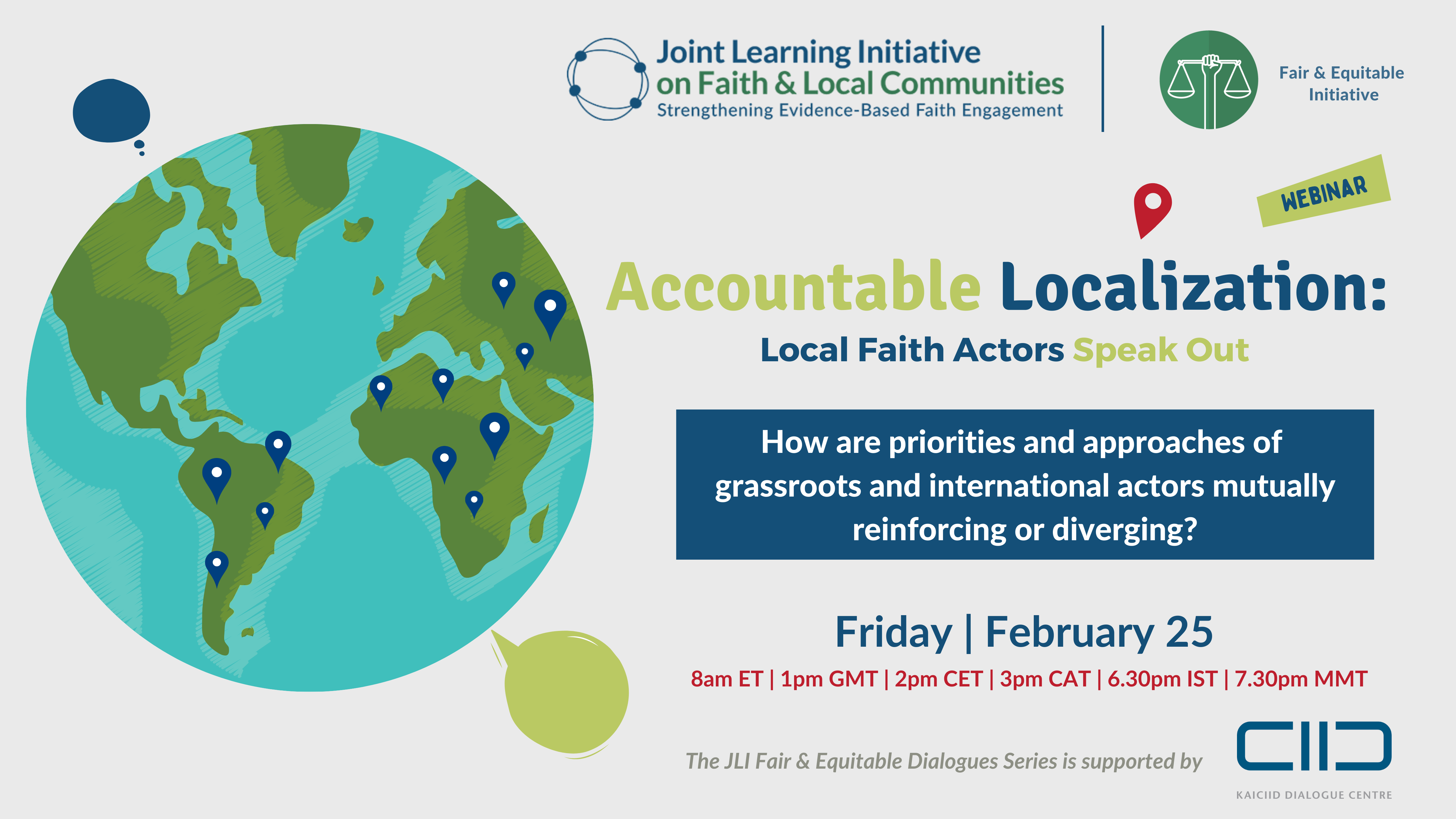
What transpired from these dialogues was a consensus that confronting asymmetries of power, whilst uncomfortable, was needed, and required understanding from all sides. Understanding how people approached definitions of words was particularly important, as terminologies had different meanings for different people, and language gaps and cultural divides complicated matters. Terms like “decolonisation” can be difficult for many, due to how different cultures approach this topic from a contextual understanding. But the dialogues provided a space where we could understand how different people approached conversations about decolonisation.
There was also a realisation that we needed to create more of these spaces, especially supporting the agency of those faith actors who do not usually get a seat at the table to share their ideas. Inevitably, what came up during the dialogues was still a sense of reluctance from international secular agencies to engage wholeheartedly with faith actors, especially those at the local level. There is much more work needed to overcome stereotypes of local faith actors and also vice versa.
He reminded me of the importance of having humility during this process of wanting to listen and learn.
Colonialism is a fact.
We can’t repair the past, but we can look at the inherent contradictions and complexities of the humanitarian project, adopting a sense of humility that calls on us to listen and learn. This is where there are learning opportunities provided by the COVID-19 pandemic, where lockdowns and travel restrictions exposed the fallacies of the current system and the unsustainability of the aid relationship. It provided a blueprint for true local, decolonised action, where locals have agency and power to act according to their local challenges. Recently I was challenged by a Buddhist monk in Sri Lanka to explain in simple terms about what I meant in a language that he understood. He made me realise the importance of using clear, everyday language when engaging with local faith communities, instead of the inaccessible jargon favoured by our sector. He reminded me of the importance of having humility during this process of wanting to listen and learn.
In providing that blueprint, a space can be provided for an equity-based understanding of humanitarian action which advocates for ‘adapting humanitarian work to each individual’s needs and background [to ensure] those affected are being treated equitably’. This means understanding that manifestations of oppression, such as racism, are rooted in power hierarchies that often do not operate alone. They intersect with gender, religion, socio-economic status, geography, sexual orientation, and numerous other social markers, creating layers of oppression that are inextricably intertwined. Thus, addressing one facet of inequity is not enough. Effective action requires an intersectional, operationally-rooted approach to humanitarian action.
This is ultimately at the heart of a decolonised approach to disrupting the system of humanitarian and development aid. We need to do better; we need to be better, not because it is the good thing to do, but the right thing to do, to treat people with dignity, respect and humanity. This is our moral responsibility.

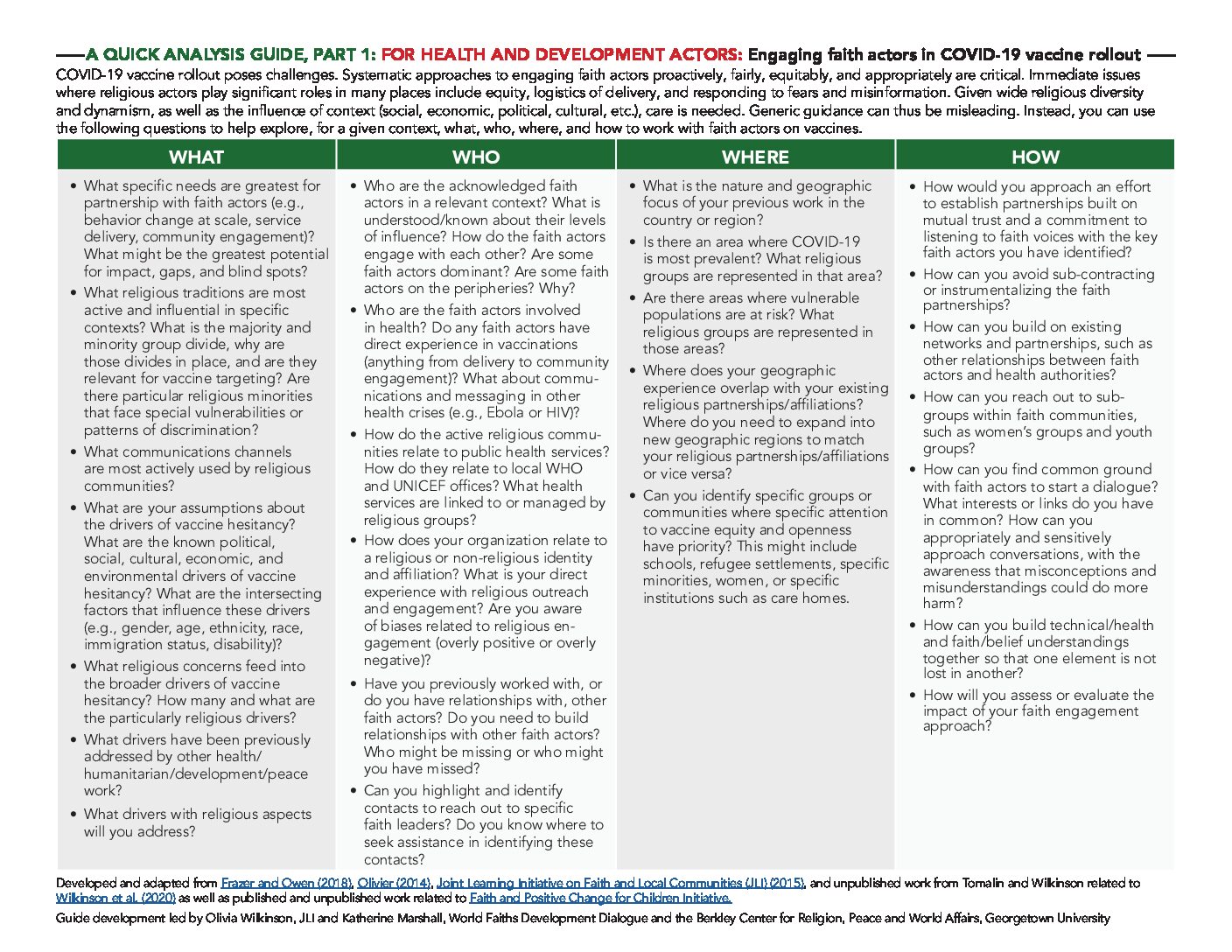
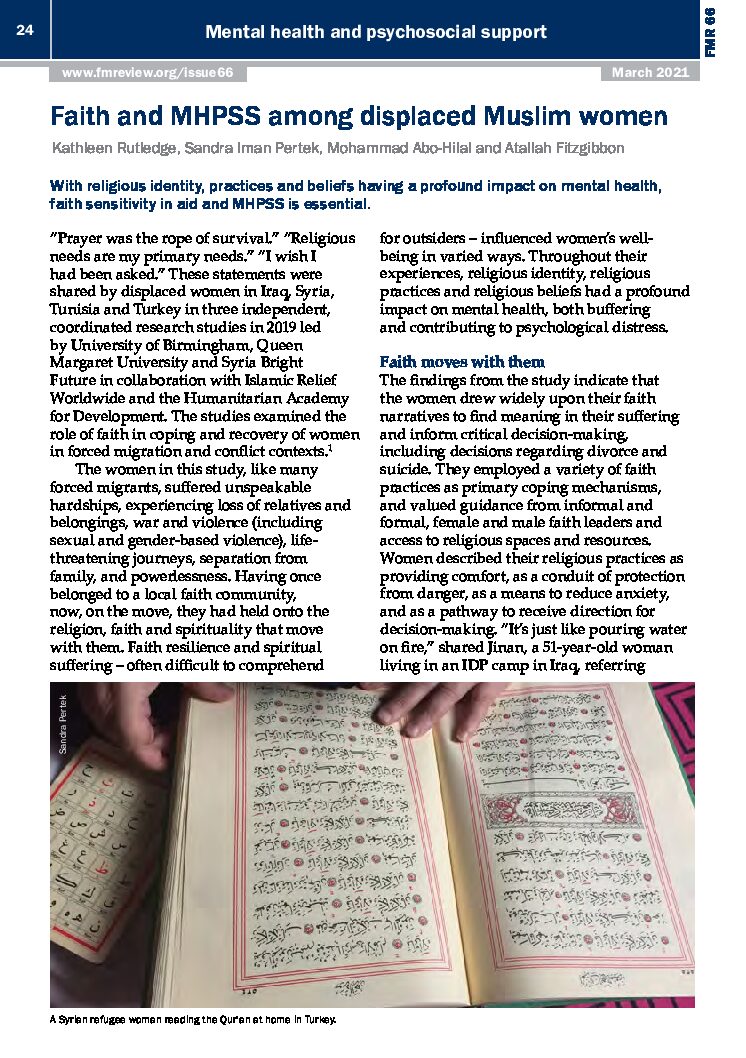
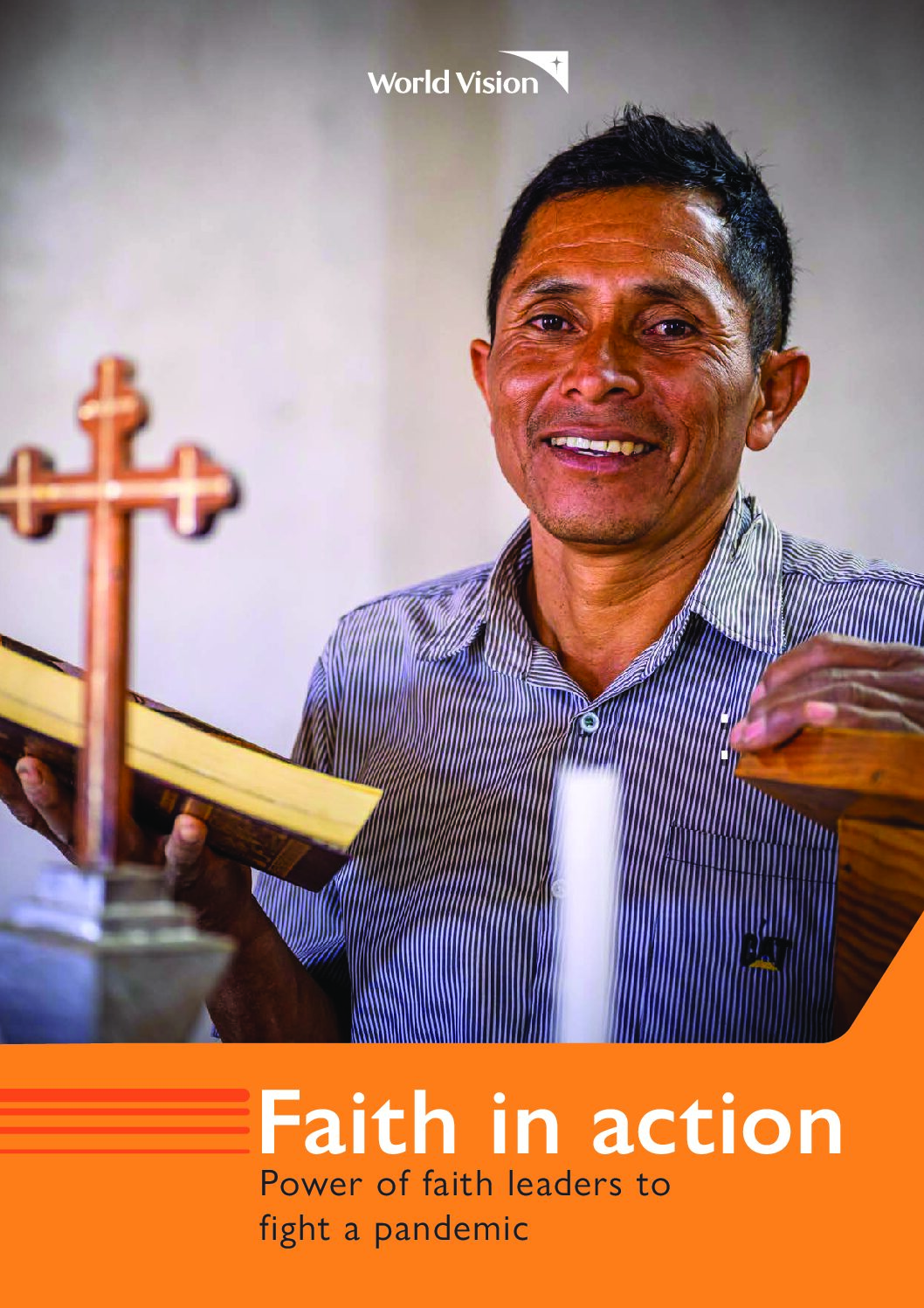
An interesting piece of writing. We need more and more neutral writers like you. Ahamed Rifai Husain
This is a beautiful overview about décolonisation approach on equity based Humanitarian aid. Doing what is right as opposed to what is good! Excellent ????